Private calls and campaign cash: Louisiana regulators’ ties to the utilities they oversee
The state is tied for dead last in renewable energy adoption. Little surprise, with so much fossil fuel money flowing to its commissioners.
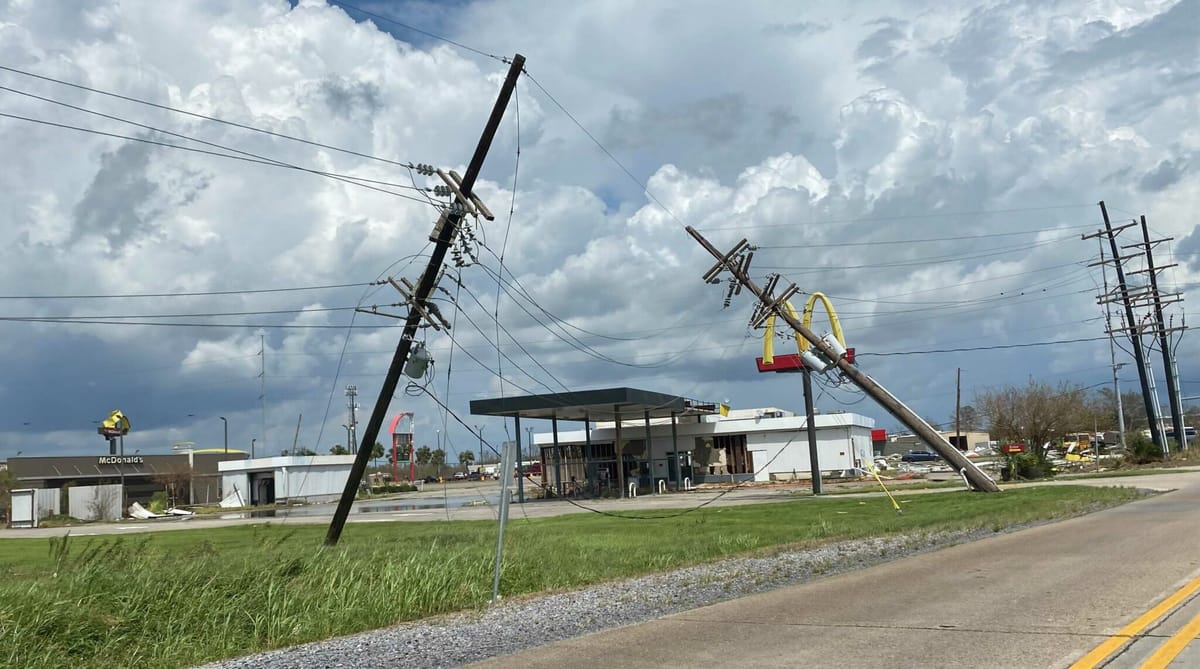
This is Part 2 of a series. Read Part 1 here.
Published by Mother Jones, Louisiana Illuminator
This past April, days before a Louisiana Public Service Commission (PSC) meeting at a remote lakefront resort, the state’s largest power company dropped a bombshell. Entergy asked the panel to vote, four months ahead of schedule, on an ambitious resilience plan that would cost nearly $2 billion.
A consumer watchdog group and the state’s refineries and chemical plants formally objected, saying the process was “unnecessarily fast-tracked” and that Entergy had provided “insufficient information” to evaluate the plan, which included replacing and strengthening utility poles and power lines and protecting substations from flooding.
Despite these objections, the item was added to the commission’s agenda. “This is (a) wholly undemocratic process,” James Hiatt, who drove two hours to be at the meeting, told the PSC. “Why does it need to be rushed through today?”
Hiatt is the founder of an environmental advocacy group, For a Better Bayou. He said the list of resilience projects was illegible on the PSC’s website.
Shortly before the meeting, big industrial power users, including Chevron and ExxonMobil, agreed not to oppose Entergy’s resilience plan after a deal was reached to shift millions of dollars of its costs onto residential and commercial ratepayers.
Commissioners Davante Lewis and Foster Campbell, blindsided by the change, pushed the five-member panel for a postponement, but they were overruled, and the plan was approved.
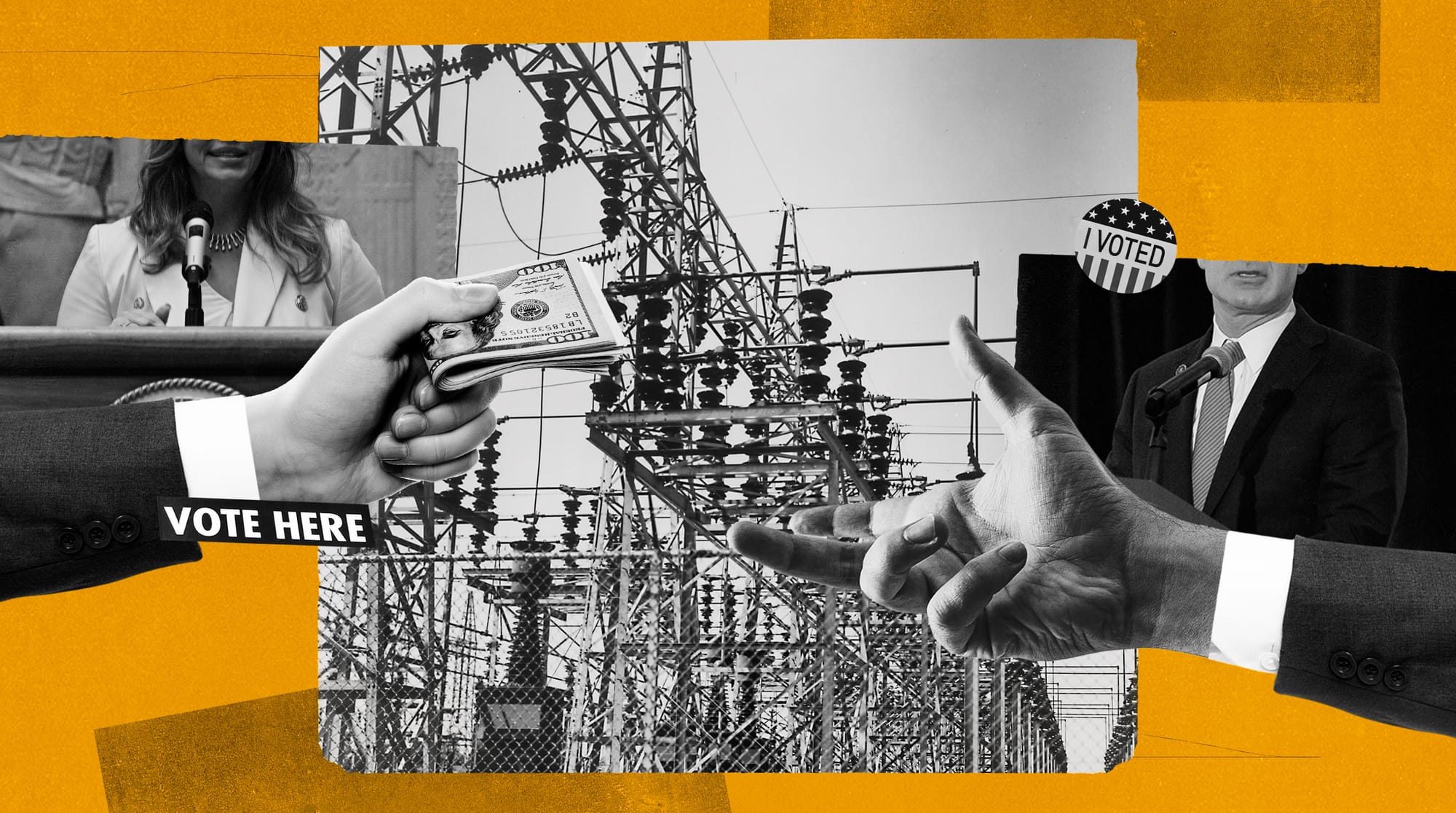
Advocate: Residents, small businesses lack ‘voice’
The last-minute decision to saddle ratepayers with a greater share of the utility’s costs, exemplifies the imbalance of power in Louisiana and what’s at stake in the upcoming election for an open PSC seat. The winner will replace Craig Greene, a critical swing voter on the commission.
Residents and small businesses have almost no sway over the PSC, compared to utilities and big industrial power customers, said Logan Atkinson Burke, executive director of the Louisiana-based consumer group Alliance for Affordable Energy.
“Most residents in Louisiana have no idea who's making the decisions about how much their utility bills cost,” Burke said. “At the same time, the companies that have an outsized voice in every decision-making room in our state and wield enormous political power … You can’t possibly say residents have the same voice the fossil industry and utilities do.”
One possible reason for that power imbalance: Over the last decade, nearly 43%, or about $3.5 million, of $250 and over campaign contributions to Louisiana commissioners came from utilities, energy-related businesses and their attorneys and lobbyists, according to a Floodlight analysis of the states that elect their utility regulators.
“It's probably as close to bribery as you could possibly get and call it legal,” said Simon Mahan, executive director of the Southern Renewable Energy Association, which works in Louisiana.
The PSC, in turn, has resisted measures that could curb utility profits, such as requiring them to encourage energy efficiency or add renewable energy to the power mix — actions that could not only save ratepayers money, but would help reduce greenhouse gas emissions in one of the states most affected by climate change.
Louisiana law also lets commissioners engage in unreported private chats with representatives of the utilities they regulate — ”ex parte” communications that are banned or subject to strict reporting requirements in many other states.
And the commission, an independent body under the state constitution, is the ultimate arbiter of its own decisions.
“I don't know of another public service commission (in the country) that has the law, level of authority and the breadth and depth of jurisdiction without any — I don't want to use the word oversight — but any other controls,” Burke said.
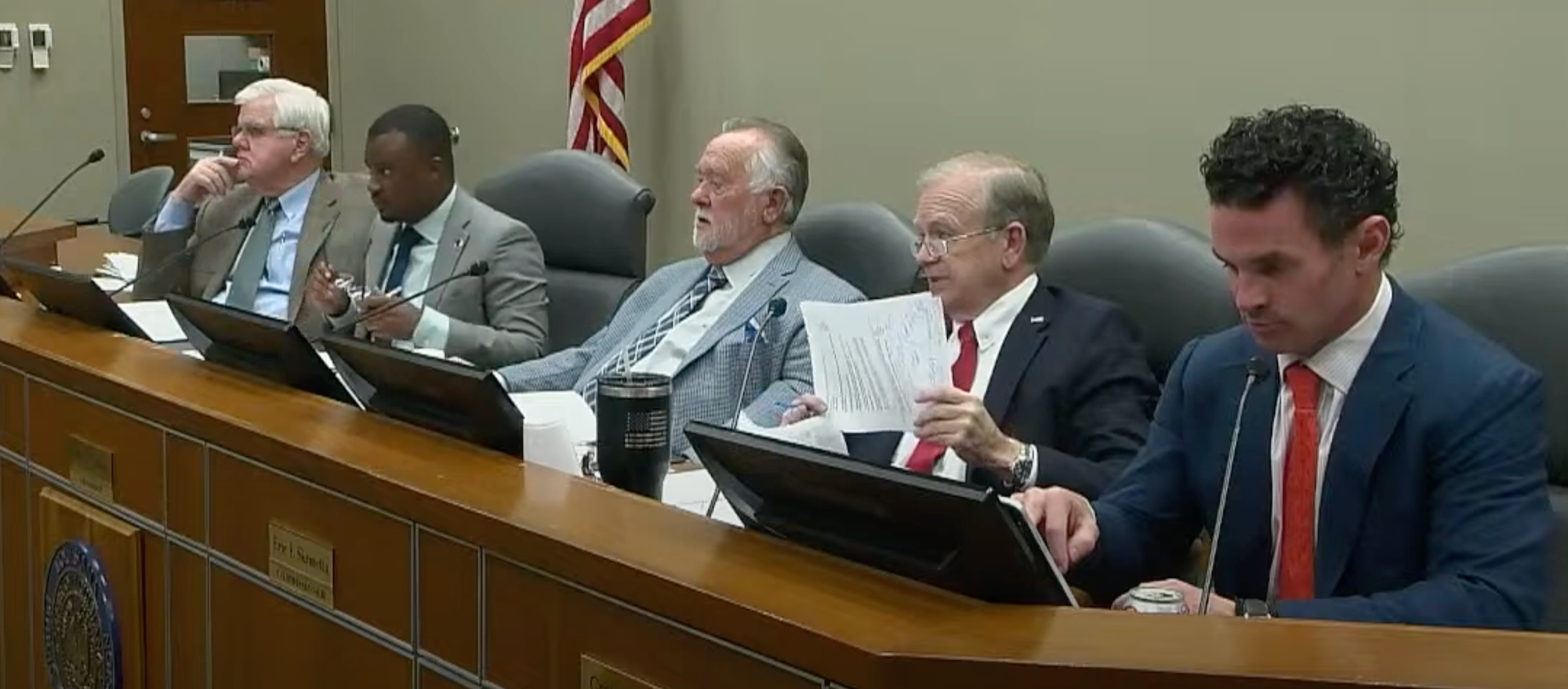
Louisiana commissioners paid a fraction of other states
Louisiana is one of 10 states that elect public service commissioners. According to data analyzed in a months’ long Floodlight investigation, Louisiana state regulators receive more campaign cash from utility and oil and gas sources than regulators in any of those other states except Alabama.
Technically part-time officials, Louisiana commissioners are paid $53,000 a year, $90,000 less than the average paid to commissioners elsewhere: Mississippi pays commissioners $135,000 a year; Texas, $200,000.
“I’m doing it for God and country, for sure not what the pay is,” Louisiana Commissioner Mike Francis said.
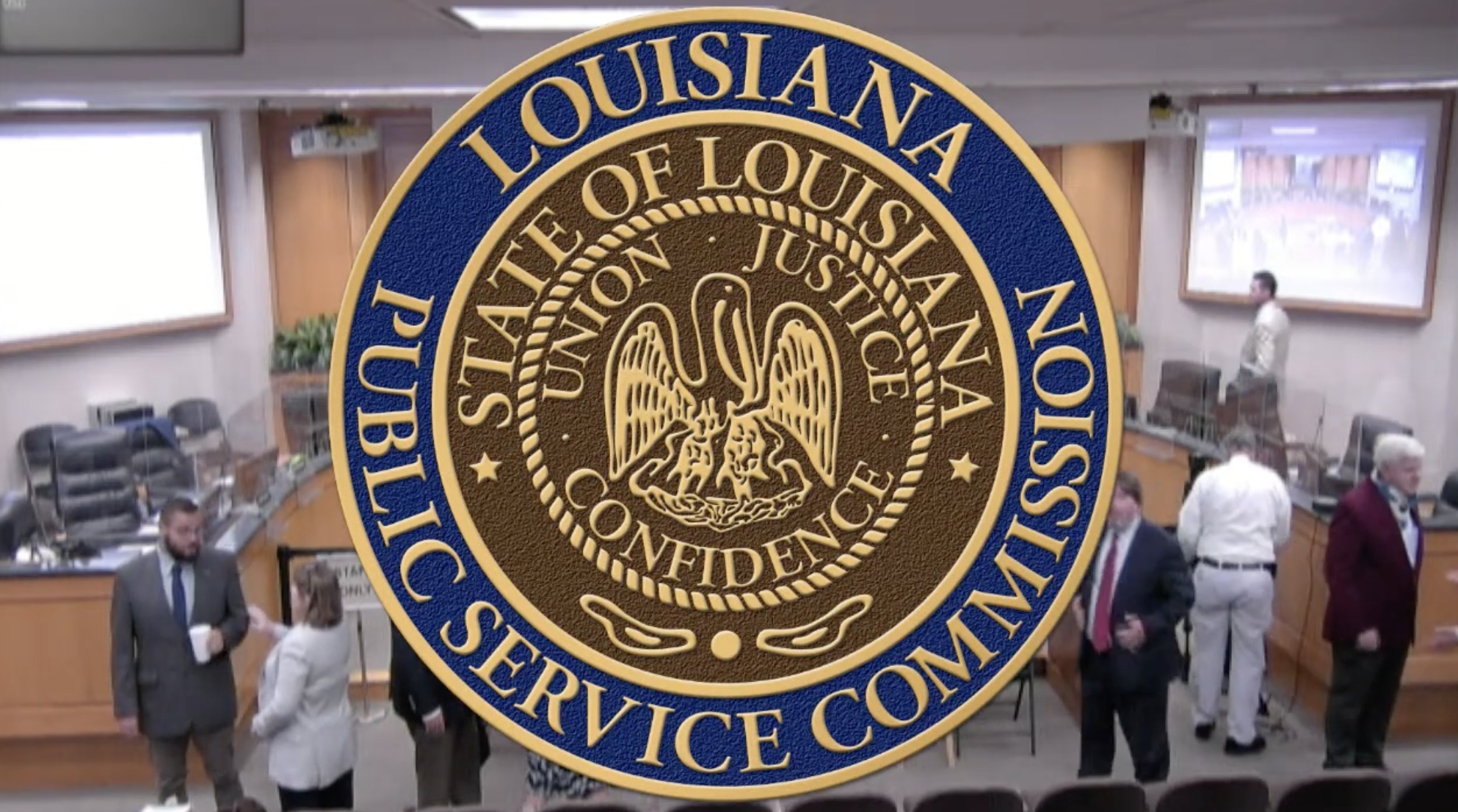
Floodlight’s investigation found that power companies and fossil fuel interests have given at least $13.5 million to elected utility regulators in the 10 states where PSCs are elected since 2014 — or about 35% of all direct campaign contributions of $250 and above. This total does not include untold millions funneled through political nonprofits that handle dark money, which are not required to report their donors.
The analysis found that over the past decade, Entergy Louisiana, its executives and family members have given campaign donations totaling about $350,000 to commissioners. Cleco, the second largest electric utility in the state, and its executives have donated $206,000 to commission races. Neither responded to a request for comment about their donations.
Floodlight also has reported that Bernhard Capital Partners, a private equity firm, gave more than $200,000 in campaign contributions to Louisiana PSC members before they unanimously approved — without discussion — Bernhard’s purchase of Entergy Louisiana’s gas distribution system in August.
Louisiana commissioners who responded to Floodlight said campaign money doesn’t influence their decisions. “Hell no, I do what I want,” said Campbell, a member who has served on the commission for 21 years. In the last decade he’s received 34% of his campaign contributions from utilities and fossil fuel sources.
Francis said utilities support him because “they feel like I’m a good, solid businessman who’s going to vote what’s politically right, not what the polls say.”
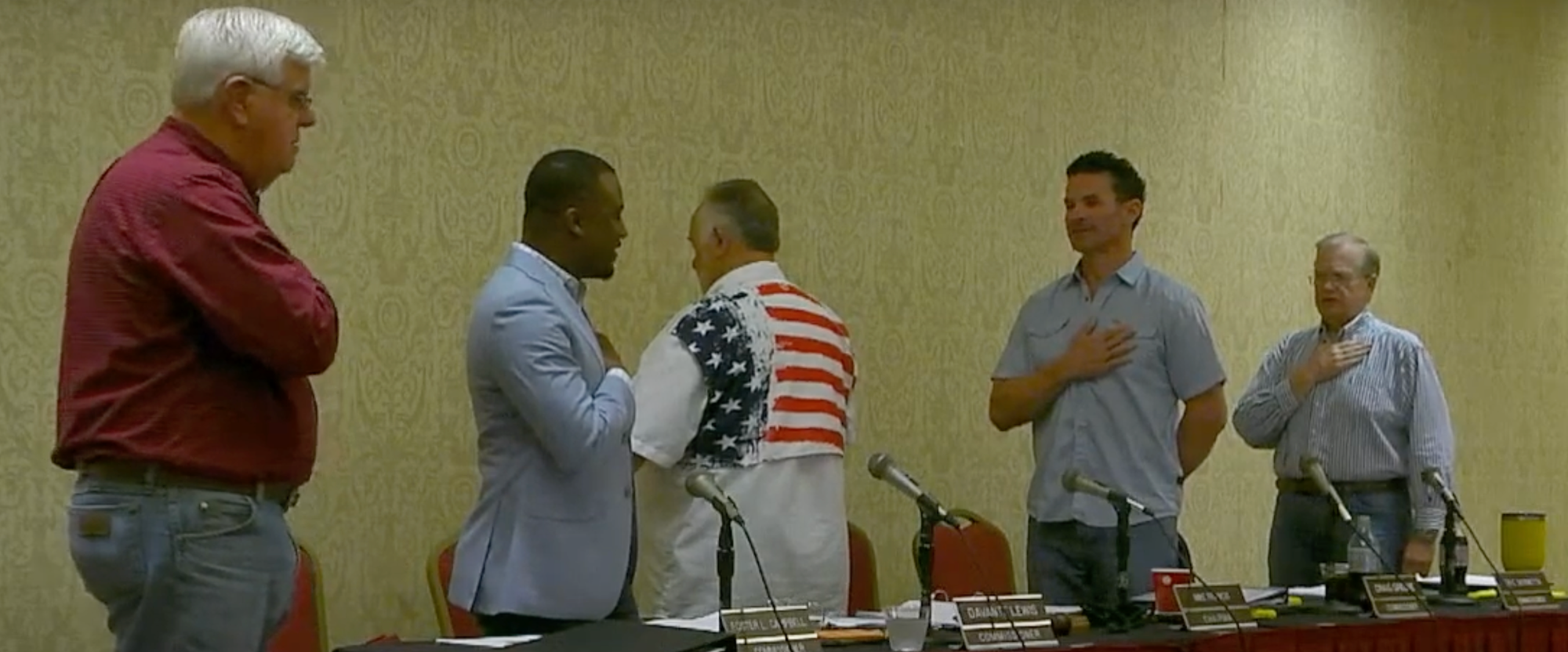
The largest donors to the Louisiana campaigns, cumulatively, are regulatory attorneys and lobbyists who appear before the commission. Taken together, those firms have donated just under $1 million to commission races in the past 10 years.
Mahan, of the Southern renewable group, sees irony in the fact that these paid utility advocates often argue for higher profits — and higher energy rates — with their fees ultimately coming from customers’ pockets.
“Oftentimes, this is ratepayer money,” Mahan said. “I mean, this is money that's going from electric bills to pay for these consultants, and then the consultants are turning around and using it for campaign contributions.”
Louisiana’s PSC does not oversee Entergy New Orleans, which is regulated by the New Orleans City Council. In 2022, the council approved an ordinance prohibiting members from taking contributions from entities they regulate. The Louisiana PSC is examining how much of such political spending can be included in electric rates.
One of those lobbying firms, Southern Strategy Group, has donated $104,746 to commissioners, Floodlight found. Brad Mittendorf, a partner at the lobbying firm, sees no harm in doing so.
“Campaigns are the seed corn of democracy. Unless we conclude that only rich folks should run for office, or we adopt public financing for campaigns — an idea about as popular as Alabama’s football team in Louisiana — candidates have to raise money to run for office,” said Mittendorf, who along with his wife has donated $40,000. “Our contributions are our acknowledgement of that fact.”
In the other nine states that elect their commissioners, Arizona has public financing of campaigns for utility regulators, while Mississippi, Georgia and Alabama prohibit regulated entities from contributing to commission races. Commissioners in the six other states can accept money from regulated entities.
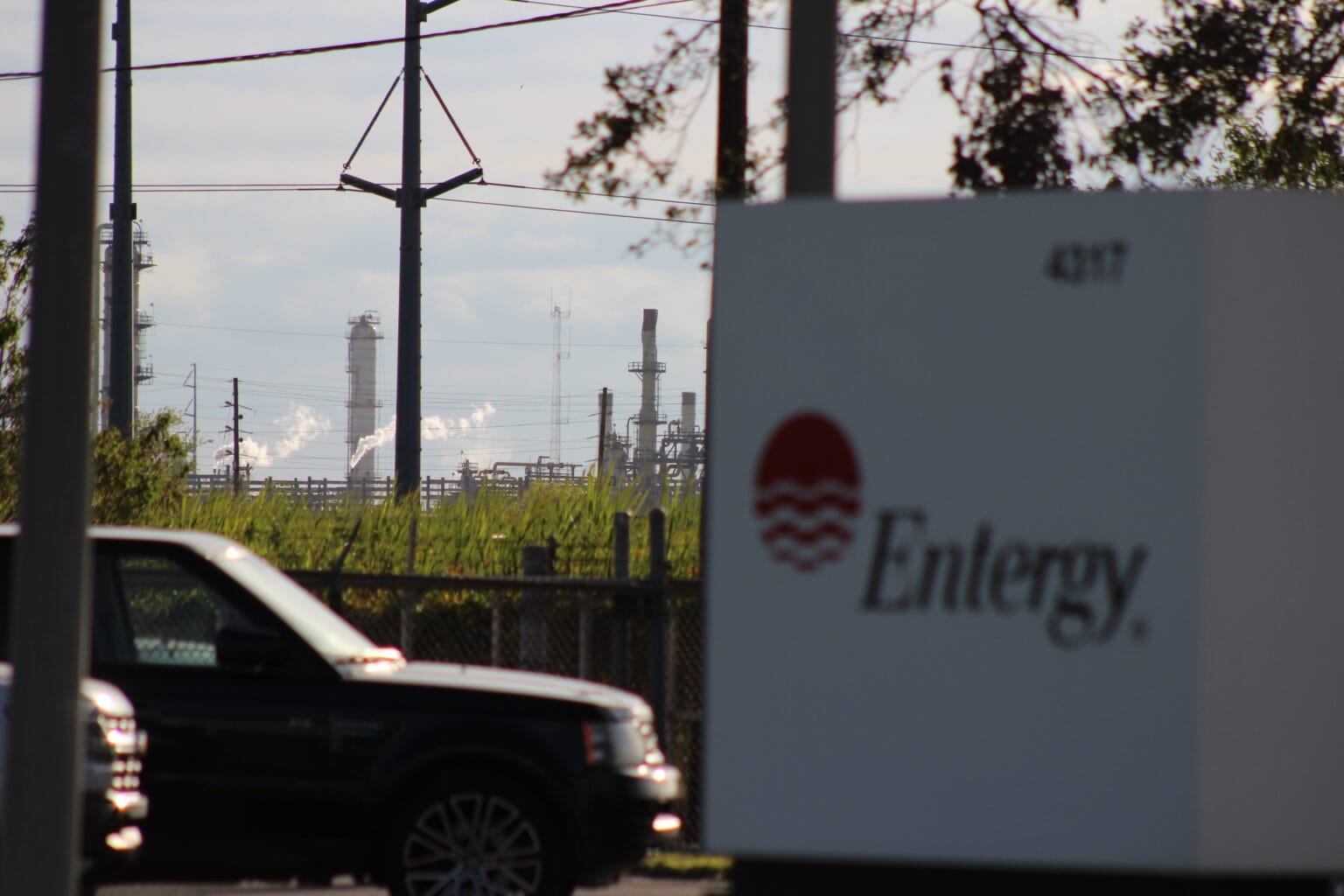
Commission uniquely situated to address climate change
Louisiana’s PSC is not overseen or directed by the Legislature or the governor and is therefore uniquely situated to cut greenhouse gas emissions in the oil-friendly state by reducing its reliance on fossil fuels to produce electricity. But it rarely does.
In fact, based on figures from the U.S. Energy Information Administration, Louisiana is tied for last among the 50 states for renewable energy use, with just 3% of its electricity coming from renewable resources.
The amount of energy from solar, wind, hydropower and biomass is so low that industrial users this year convinced the PSC to let them build their own renewable energy generation to help power their operations.
After Hurricane Katrina in 2005, when nearly 900,000 Louisiana customers were out of power — some for weeks — community advocates pressed for rooftop solar, which allowed residents in the nation’s 12th sunniest state to generate some of their own electricity. The Legislature adopted tax credits that, combined with federal credits, covered up to 80% of the installation of rooftop solar.
But after failing to win the solar industry’s support in his 2014 re-election campaign, Commissioner Eric Skrmetta urged Louisiana legislators to end the credits, calling them a “solar subsidy.”
Then in 2019, the Louisiana PSC put another dagger into the heart of solar, slashing the amount homeowners receive from selling their excess power back to the utilities — making rooftop less financially feasible for consumers.
But in recent years some members have been advocating for renewables and sustainability in new ways — namely Lewis, fellow Democrat Campbell and swing member Republican Craig Greene.
The three commissioners in January voted 3-2 to pass an energy efficiency program operated by an independent third party — the first such program in the South. Lewis, Campbell and Greene have taken the smallest portion of campaign donations from fossil fuel companies and utilities, 11%, 34% and 34%, respectively.
Francis and Skrmetta, who each received about 50% from those same interests, opposed the program. Skrmetta called it “a waste of money” and held up approval of the program for almost two hours, filibustering and debating witnesses and other commissioners while audience members chanted “Vote! Vote! Vote!”
Of the three candidates running to replace Craig Greene — Jean-Paul Coussan, Julie Quinn and Nick Laborde — Coussan has received 27% from utility and fossil fuel interests, Quinn has received 26%; and Laborde, who is refusing donations from utility companies, has received none as of Oct. 31.
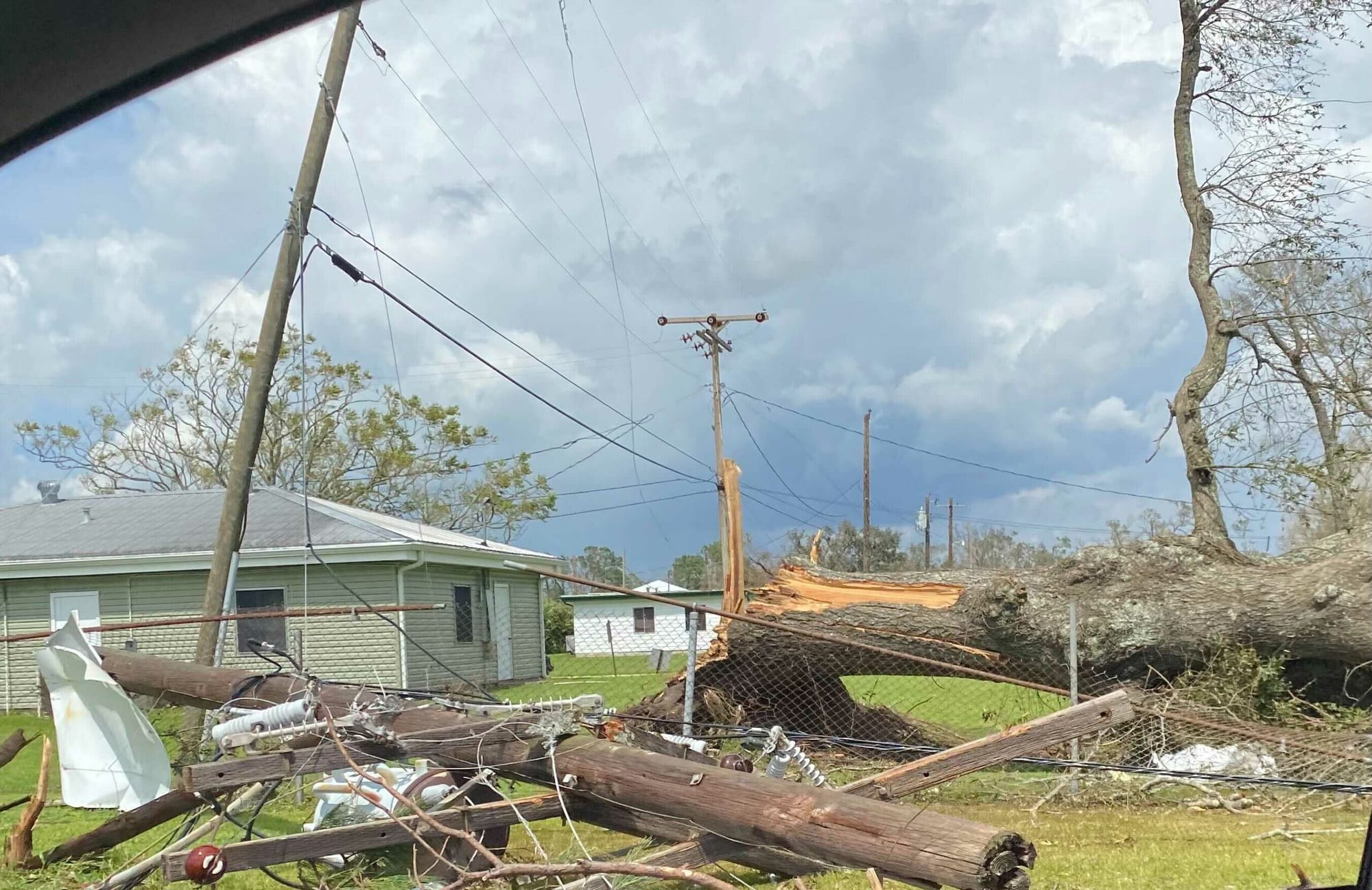
‘Educating the commission’
Louisiana is one of the rare states with no restrictions on when utility representatives — or anyone for that matter — can call or stop by to talk with commissioners. There are no requirements to keep records of those visits. Such an unrestricted open door practice is unusual in other states.
The communications, called ex parte, can work both ways, Lewis said, describing such conversations as “very frequent and very deliberate.”
He said, for example, utilities reach out to update commissioners on the status of negotiations in cases, and Lewis contacts utilities if he finds a proposal to be unacceptable. Lewis said without any parameters on those communications, “I do think it is a little bit harmful to the people of Louisiana.”
The utilities spend that one-on-one time “educating” commissioners about complex regulations and pending decisions, said David Cruthirds, a regulatory attorney who spent 11 years observing and writing about the PSCs in the Southeast and Midwest, including Louisiana.
Cruthirds said utilities often consult with commissioners before formally proposing rate changes and new power generation, among other issues, trying to determine what kind of deal the commissioners are willing to accept.
“By the time it gets filed, it’s half litigated,” he said, giving residential customers little opportunity to influence the outcome.
Added Cruthirds: “It’s basically as if a criminal defendant can talk with a jury and judge behind the scenes, without anyone knowing about it.”.
Before the April vote on Entergy’s resilience plan, Skrmetta said he had spent an “enormous amount of time” talking with Entergy about it. Burke, the Louisiana consumer advocate, said Skrmetta never reached out to her organization.
Erin Hansen, policy director of Together Louisiana, a nonprofit grassroots organization of churches and community groups that would like to build community solar arrays, said she was shocked to discover most people who regularly attend the monthly commission meetings are the executives, lobbyists and attorneys paid to be there.
In that room, she said she’s observed how things are done — and hopes to use what she’s learned to help the people served by her organization.
“I’m learning about what’s possible,” Hansen said, “as long as you have three votes at the Public Service Commission.”
Floodlight is a nonprofit newsroom that investigates the powerful interests stalling climate action.






